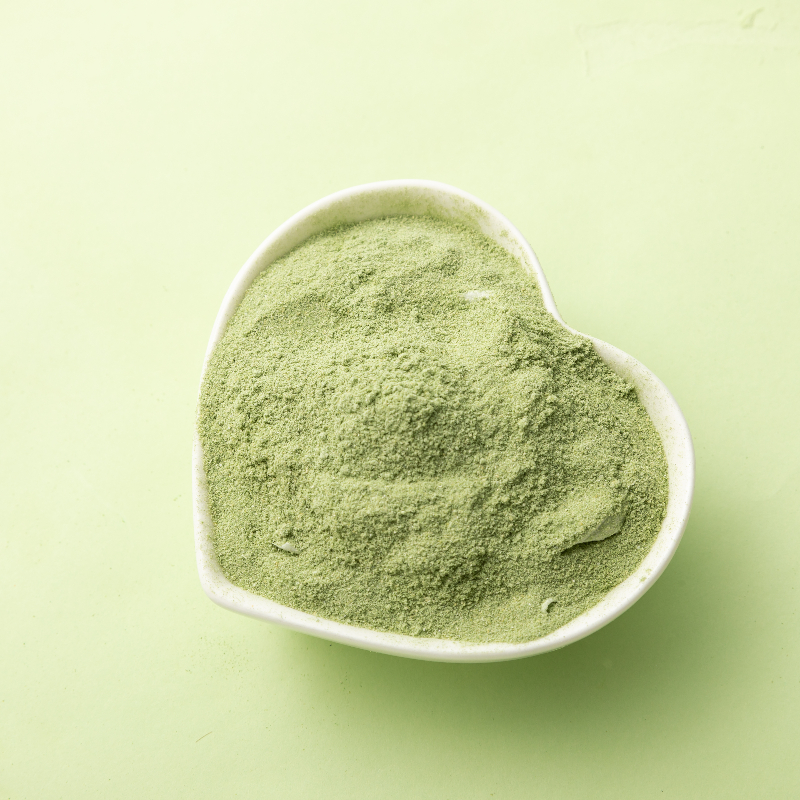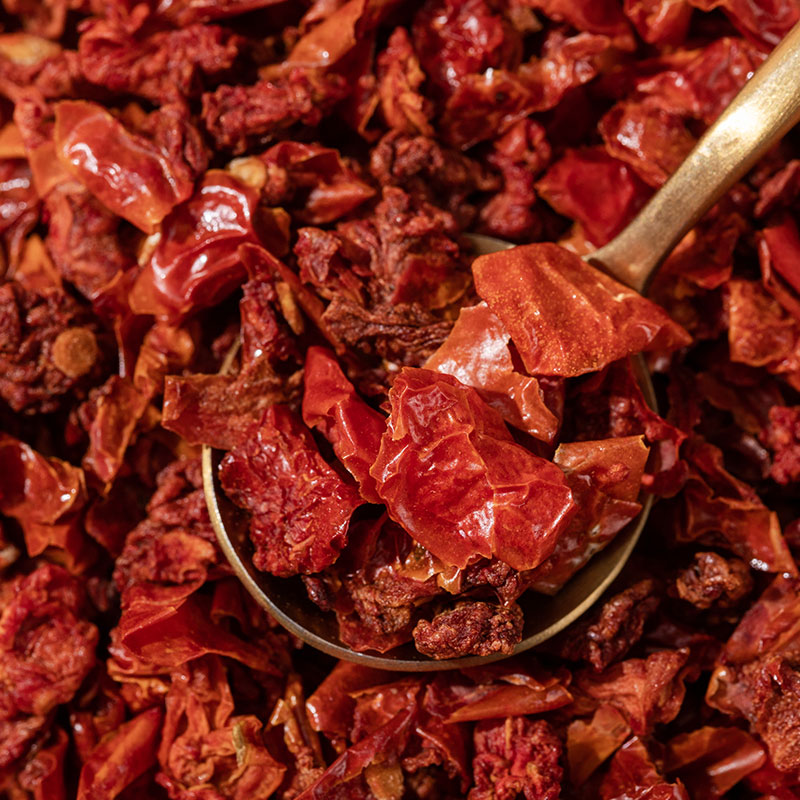Several animal studies and a recent human study suggest consuming freeze-dried black raspberry powder may significantly reduce the risk of gastrointestinal cancers, especially esophageal cancer and colon cancer. Black raspberries are a concentrated source of many compounds that show a multitude of anti-cancer properties. Some of these compounds include various flavonoids (e.g., ellagic acid, ferulic acid, coumaric acid, quercetin, anthocyanins), vitamins (e.g., vitamins A, C and E, and folic acid), minerals (e.g., calcium, potassium, selenium and zinc), and phytosterols (e.g., ß-sitosterol, campesterol, and stigmasterol). Various studies suggest the anthocyanins are the most abundant compounds in black raspberries, representing approximately 5-6 percent of their dry weight.
Animal models show that ellagic acid protects against chemically-induced cancer in multiple organ sites, including the rat esophagus. Ellagic acid has been shown to reduce the metabolic activation of procarcinogens by inhibition of specific cytochrome P450 enzymes. Cytochrome P450s (2E1 and 1A1, for example) are major enzymes involved in the conversion of NMBA and benzo(a)pyrene to their carcinogenic form. These enzymes are inhibited by ellagic acid. Ellagic acid decreased the activation of these two enzymes and inhibited carcinogenesis in the rat esophagus and mouse skin. Dried Green Peas Manufacturers China

Ellagic acid has also been shown to enhance phase II enzyme activity responsible for the detoxification of carcinogens. Ascorbic acid (vitamin C) has been shown to suppress the in vivo nitrosation of primary and secondary amines in the stomach from nitrite, thus inhibiting the formation of nitrosamine carcinogens including NMBA. Many studies have shown that calcium protects against the development of colon cancer in animals, and human studies suggest a protective effect in humans as well. ß-sitosterol has shown cancer-preventive effects against carcinogen-induced mammary cancer in rodents.1
Freeze-Dried Raspberry Powder Is Best
By freeze-drying the berries, the anti-cancer components mentioned above are concentrated approximately 10-fold because black raspberries are almost 90 percent water by weight. Ascorbic acid is the only component known to degrade substantially during storage and before freeze-drying the berries. The other components seem to be well-preserved even when black raspberries are stored at 4°C for several months.1
Studies involving cancer prevention in animals and a human colon cancer study have used freeze-dried raspberry powder due to its concentrated levels of anti-cancer nutrients. Dietary freeze-dried berries were shown to inhibit chemically induced cancer of the rodent esophagus by 30-60 percent and of the colon by up to 80 percent. The berries are effective at both the initiation and promotion / progression stages of tumor development. Berries inhibit tumor initiation events by influencing carcinogen metabolism, resulting in reduced levels of carcinogen-induced DNA damage. They inhibit promotion / progression events by reducing the growth rate of premalignant cells, promoting programmed cell death of cancer and premalignant cells (apoptosis), reducing biomarkers of tissue inflammation, and inhibiting the ability of tumor cells to form new blood vessels to feed themselves for purposes of more cell division and metastasis (angiogenesis). On a molecular level, berries modulate the expression of genes involved with cell division (proliferation), apoptosis, inflammation and angiogenesis.4
An important animal study found that the administration of freeze-dried strawberries and black raspberries, at concentrations of 5 percent and 10 percent in a synthetic diet, produced significant decreases in N-nitrosomethylbenzylamine (NMBA)-induced esophageal tumors in rats.1 A 2011 study evaluated the effects of black raspberries on biomarkers of tumor development in the human colon and rectum. In this study, biopsies of adjacent normal tissues and colorectal cancer (adenocarcinomas) were taken from 20 patients before and after oral consumption of BRB powder. The patients consumed 60 grams per day of freeze-dried black raspberry powder for 1-9 weeks. The data showed that the black raspberry powder exerted anti-cancer effects on genes associated with proliferation, apoptosis and angiogenesis, including the Wnt pathway (a signaling pathway often mutated in cancer that encourages rapid cell division of cancer cells).5
Colon Cancer: Incidence and Potential Factors
Colon cancer is the second leading cause of cancer death in our society, and esophageal squamous cell carcinoma (SCC) is one of the most common cancers in the world. The incidence rate of esophageal SCC varies greatly from one geographic area to the next; the highest incidence is in the "esophageal cancer belt," which includes areas in eastern Turkey, the former Soviet Union, Iraq, Iran, China, Japan, South Africa and France. The overall five-year survival rate for this disease is low, ranging from 5 percent to 15 percent.
The predisposing factors for this cancer in these geographic regions include tobacco and alcohol use, intake of salty food and food contaminated with various mycotoxins, deficiencies in dietary vitamins and minerals, and thermal injuries from the consumption of hot beverages. Nitrosamine carcinogens are also linked to esophageal cancer, including the carcinogen N-nitrosomethylbenzylamine (NMBA), which is present in the diet in China. NMBA is known to induce mutagenic, toxic and carcinogenic effects in esophageal tissues, and is the most potent nitrosamine carcinogen in the rat esophagus. In Linxian, China, the region with the highest incidence of esophageal SCC in the world, NMBA is present in pickled vegetables.1
In North America, adenocarcinoma of the esophagus is the more common form. Squamous cell carcinoma is associated with tobacco and alcohol consumption in North America. Adenocarcinoma is often associated with a history of gastroesophageal reflux disease (GERD) and Barrett's esophagus. Studies suggest that smoking, drinking alcohol, exposure to polycyclic aromatic hydrocarbons from smoked foods and BBQ foods (and cigarette smoke), and a history of certain autoimmune diseases such as celiac disease, reactive arthritis and systemic sclerosis, are important risk factors for esophageal cancer in North America.2-3
When it comes to drinking juices that prevent cancer, I am a big fan of daily consumption of pure pomegranate juice. Compared to research on all other juices, the evidence to support cancer prevention is strongest for pomegranate juice (both in animal and human studies). Pomegranate juice is a rich source ellagic acid as well as other anti-cancer polyphenols. I suggest drinking 4-8 oz per day to help prevent prostate cancer and breast cancer, in particular.
That said, the recent evidence showing the powerful anti-cancer effects of freeze-dried black raspberry juice appears to be most compelling. Thus, I would certainly endorse consuming freeze-dried black raspberry juice each day as part of a cancer prevention program. However, 60 gm per day – the therapeutic dose – may be too impractical to adhere to for prevention purposes. Until we see the results of future studies, it is difficult to know what dose to use for cancer prevention; although ingesting any dose is likely better than ingesting none. I would suggest including it in the diet in a reasonable quantity each day, especially for individuals with risk factors for esophageal and/or colon cancer.
Dr. James Meschino is the director of nutritional therapies at the Canadian Integrative Cancer Immunotherapies Clinic in Toronto, where he works with a team of medical physicians and an oncology… See full bio
In any given year, nearly 40 percent of the U.S. population will develop a low back injury severe enough to limit activity. Once injured, there is a 22 percent chance of reinjury within three months and a nearly 80 percent chance of reinjury within the next three years.
An interesting study examined what is important to patients as they seek care for their low back pain. The investigators also surveyed MDs, asking them to rate what they thought would be most important to their patients.

Wholesale Freeze Dried Strawberry Joining a franchise can help you own a highly profitable, dynamic practice that is based on your personality and goals. If you're thinking about joining a franchise, let's take a look at what the first year is like.